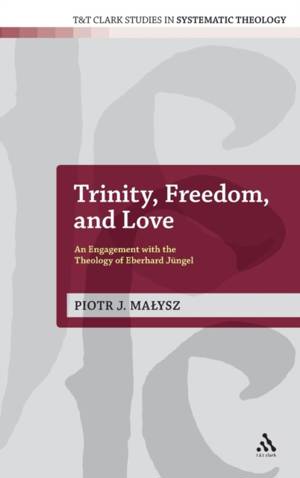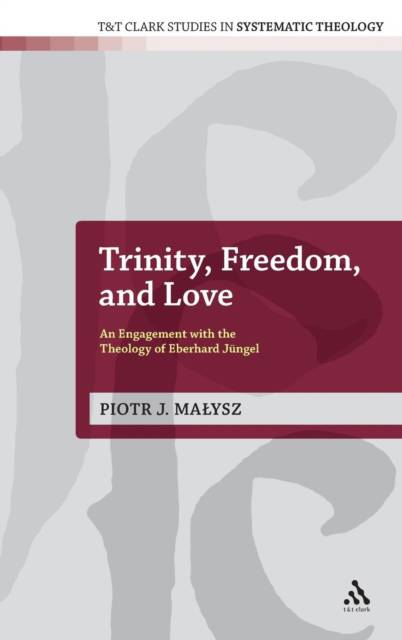
- Afhalen na 1 uur in een winkel met voorraad
- Gratis thuislevering in België vanaf € 30
- Ruim aanbod met 7 miljoen producten
- Afhalen na 1 uur in een winkel met voorraad
- Gratis thuislevering in België vanaf € 30
- Ruim aanbod met 7 miljoen producten
Zoeken
€ 339,45
+ 678 punten
Uitvoering
Omschrijving
By critically engaging Eberhard Jüngel's doctrine of the Trinity, this volume makes a broader, constructive contribution to contemporary trinitarian thought.The argument centers on the question - posed by the inconsistencies uncovered in Jüngel's doctrine of God - of how one can assert both divine freedom and the inter-subjectivity of God's trinitarian self-determination. Can one maintain God's freedom in the interest of divine spontaneity and creativity, while remaining committed to inter-subjective vulnerability which the Cross entails as an event of divine love?
Malysz suggests that a resolution to this problem lies in a logic of divine freedom, which, next to the trinitarian logic of love, constitutes a different and simultaneous mode of trinitarian relationality. To develop this logic, Malysz draws on Jüngel's understanding of human freedom as rooted in the "elemental interruption" of the self-securing subject. Malysz thus not only brings Jüngel's view of divine freedom into correspondence with the anthropological effects that Jüngel ascribes to it, but, above all, offers an imaginative, new way of closely integrating the doctrine of God and theological anthropology.
Malysz suggests that a resolution to this problem lies in a logic of divine freedom, which, next to the trinitarian logic of love, constitutes a different and simultaneous mode of trinitarian relationality. To develop this logic, Malysz draws on Jüngel's understanding of human freedom as rooted in the "elemental interruption" of the self-securing subject. Malysz thus not only brings Jüngel's view of divine freedom into correspondence with the anthropological effects that Jüngel ascribes to it, but, above all, offers an imaginative, new way of closely integrating the doctrine of God and theological anthropology.
Specificaties
Betrokkenen
- Auteur(s):
- Uitgeverij:
Inhoud
- Aantal bladzijden:
- 256
- Taal:
- Engels
- Reeks:
- Reeksnummer:
- nr. 18
Eigenschappen
- Productcode (EAN):
- 9780567572356
- Verschijningsdatum:
- 4/10/2012
- Uitvoering:
- Hardcover
- Formaat:
- Genaaid
- Afmetingen:
- 157 mm x 236 mm
- Gewicht:
- 521 g

Alleen bij Standaard Boekhandel
+ 678 punten op je klantenkaart van Standaard Boekhandel
Beoordelingen
We publiceren alleen reviews die voldoen aan de voorwaarden voor reviews. Bekijk onze voorwaarden voor reviews.








